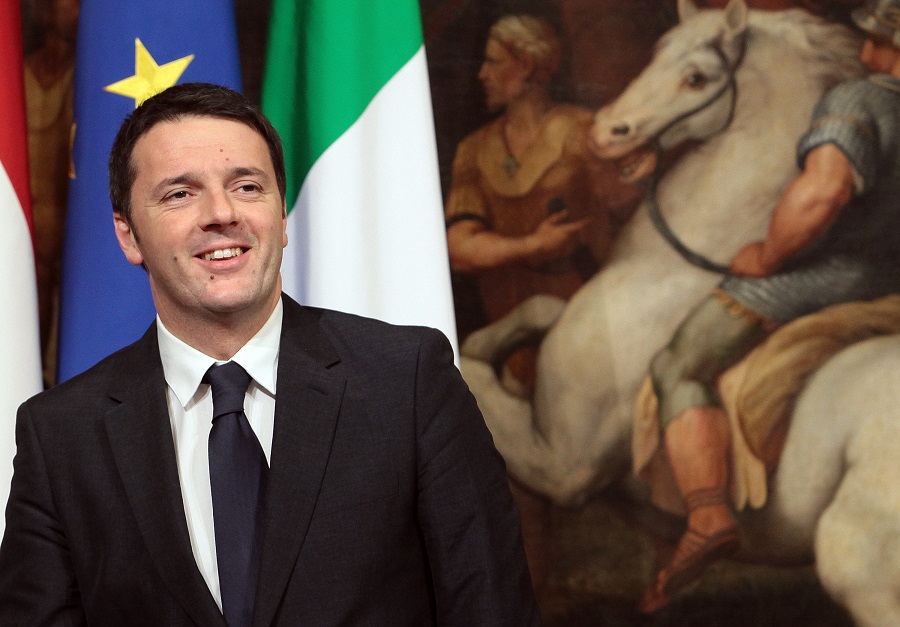Italian Prime Minister Matteo Renzi recently declared that he feels like “a Post-it note…..because my job is to remind Italy of who we are“. A few days ago, during an interview with the Financial Times , Mr. Renzi had the chance to highlight all the challenges and the problems – so as the goals and ambitions – that being Italy’s prime minister entails, stregthening his image as the one of a person determined to change Italy’s destiny.
The Financial Times started reminding that Renzi has been re-named “il rottamatore or “the scrapper”, for his attempts to transform the country’s staid economic system and gridlocked political institutions”. He replaced Enrico Letta’s technical government in a very dark moment of Italian political, economic and social history. Renzi announced several goals to achieve which have earned him widespread support among Italians yearning for a radical transformation. However, as the British newspaper points out, it would have been unfair to expect Mr. Renzi to engineer an immediate turnaround. His aides warn the impact of his policies should be judged over years, given the depth of Italy’s decades-old economic problems.
Actually, the Financial Times is not the only one who is inclined to give Mr. Renzi a chance. Andrea Montanino, director of global business and economics at the Atlantic Council in Washington, and former executive director for Italy at the International Monetary Fund, believes that “Renzi is giving a dynamism to Italy that it didn’t have before and moving things in the right direction. But that’s not enough and when you look at the [economic] numbers they tell us that the results aren’t there”.
Finally, Mr. Renzi highlighted the need to fight austerity and to create more fiscal flexibility. Moreover, he launched a number of reform projects in several areas. Worth mentioning is the labor market one designed to make it easier for companies to hire and fire workers, even at the cost of taking on the trade unions and the leftwing of his own party. As a result, he attracted plenty of enemies in his nine months as prime minister. Among the most ardent and aggressive is Maurizio Landini, head of the Fiom metalworkers’ union. Trade unions are not the only opponents of Mr. Renzi’s reform agenda. Many judges are unhappy with his overhaul of the justice system, while public sector workers are fearful of plans to cut government-spending programs.
Even though Italians seem to support his office, the common expectation is that Renzi’s political discourses will bear good fruit in short time.
Follow @castaritaHK

